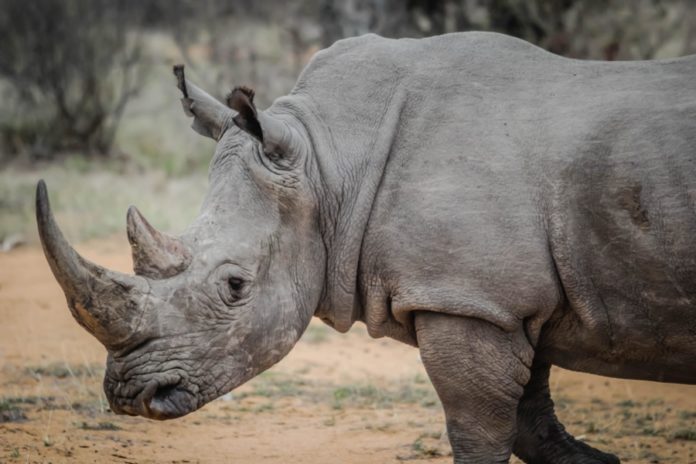South Africa’s fight against rhino poaching in the Kruger National Park and other national parks saw a slight decline in poaching numbers across the country.
Last year, 124 rhino were poached at the South African National Parks (SANParks) compared to 209 in 2021. This represents a 40% decrease compared with those killed for their horn 2021.
The Minister of Forestry, Fisheries and the Environment, Barbara Creecy says the steady decline in rhino poaching in national parks is related to the relentless war that has been waged by “fearsome anti-poaching machinery as well as a comprehensive dehorning programme.”
This year’s outcome shows that collaboration between conservation authorities, the South African Police Services, revenue authorities and international agencies works. We believe that if provincial authorities in KwaZulu-Natal follow our model, they will be able to significantly curb rhino poaching in their provincial parks before it is too late.
A total of 448 rhino were killed in the country in 2022 compared to 451 rhino poached in 2021. Unfortunately, the poaching threat has shifted to KwaZulu-Natal, which lost 244 rhino to poaching last year compared to 102 in 2021.
In 2022, a number of successful arrests and prosecutions were recorded, which contributed to the integrated work of the law enforcement agencies, comprising of the South African Police Service (SAPS), Hawks, SANParks, Environmental Enforcement Fusion Centre, the Environmental Management Inspectorate or Green Scorpions, customs officials, provincial park authorities, and the National Prosecuting Authority (NPA).
A total of 132 arrests were effected during 2022 for rhino poaching: 23 in the Skukuza area in Mpumalanga, 49 in KwaZulu-Natal and the balance in Limpopo.
ALSO READ: Poaching in Namibia rises, rhinos on the run
The recent focus on money laundering and international co-operation with other law enforcement authorities saw the arrest of 26 rhino horn traffickers and 13 people for money laundering and bribing of rangers.
To support anti-poaching efforts in KwaZulu-Natal, special interventions were introduced in collaboration with the Department of Forestry, Fisheries and the Environment (DFFE), non-governmental organizations and the SAPS, which resulted in four key arrests of rhino syndicate members who were focusing their illegal efforts in KwaZulu-Natal. These agencies will continue to collaborate this year.
“The work of the Department’s Environmental Enforcement Fusion Centre (EEFC) enables authorities to track information pertaining to wildlife crime at a national level and understand trends and changing modus operandi while supporting the investigative and tactical teams.
“During 2022, the NPA in collaboration with the DFFE established a Director of Public Prosecutions (DPP) Environmental Working Group. The purpose of this group is to foster closer collaboration between the provinces working on wildlife trafficking cases and helps identify repeat offenders moving around the country,” the department said.
As part of continued efforts to ensure the survival of the rhino species, SANParks, is in the process of identifying suitable safe habitat across South Africa for the introduction of new rhino communities.


